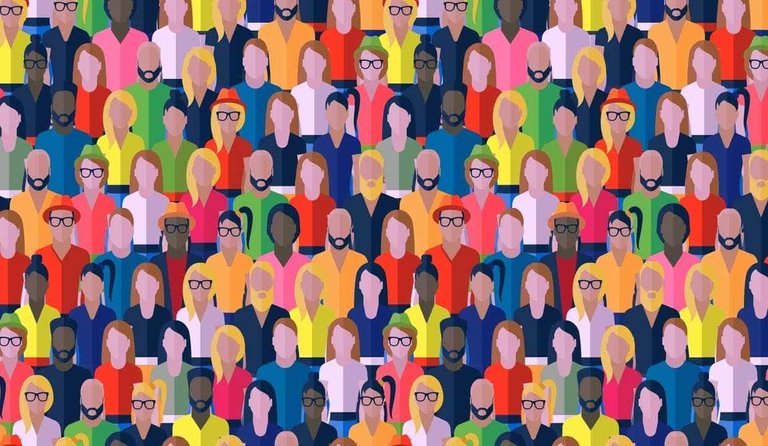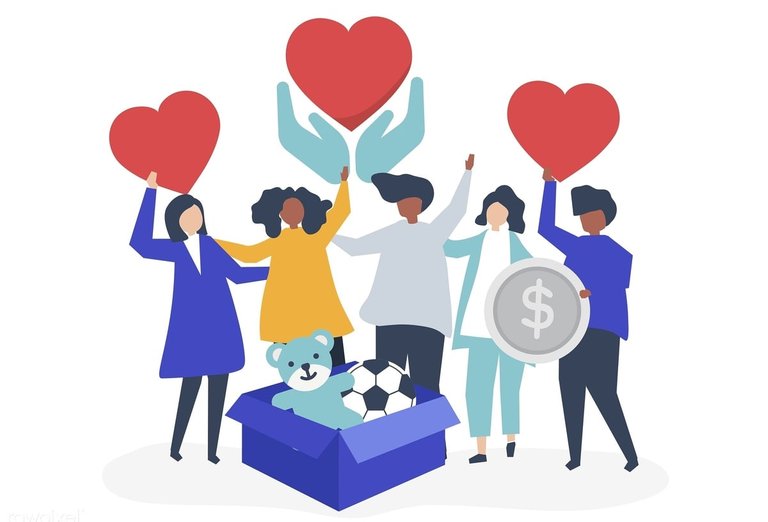In the article concerning the analysis of contemporary social problems, we have briefly exposed the base idea of the social economic model of Charax. Now we want to deeply analyze the more “human” concepts which helped us systentize this model.
Social rewarding
Charax social economic model is not to be intended as an innovative retribution system, but as a valid alternative to the on in effect, with which it shares some characteristics. First of all, work, intended as an act that requires time and energy in order to achieve a purpose that benefits the person that performs it. On the other hand, work must not be intended in the context of the production of a material good or the providing of a service, but as an action that is performed to achieve a common benefit, which is in favor of every subject involved.

The work of socialization
Creation and the upkeep of a social relationship is perhaps one of the most expensive work in terms of time and energy, yet, nowadays, is the most devalued. Just think on how time you spend with other people, performing constructive actions, such as a conversation focused on a sensitive subject, a debate on different points of view, or energy required to fulfill the partner. That time is the same - if not more - that every person would devolve to performing his job. This could seem inconceivable, but a deeper analysis could lead to the realization that the reality is near to the one described, with different times and modalities from person to person.

Relationships as “glue” of the community
Creating and upkeeping interpersonal relationships isn’t just a way to calm the wish of being accepted by others. It’s the ultimate cohesion mean, similar to no others, seemingly difficult to understand, unexplainable and, because of these reasons, the most human. It is not based on complex theorems, but on simple observations and on our innate ability to being able to relate to others. Because human beings know and sense that their social relationships are something such precious it could fill every emptiness, would it be logic or sentimental. Just think how would a productive conversation with some friends or how satisfying could be the relationship between two lovers. It’s what keeps people united, over every difference or difficulty. A relationship is the most genuine mean for those people that see a chance to grow in every difference more than looking at them as a chance to create new hierarchies.
It seems like survival keeps getting more difficult and more "expensive" as you say in demands from us for time and energy. Just trying to stay alive and provide food and shelter for ourselves and our family can leave us with very little energy for others. Often we are so tired at the end of the day that time that could be spent with other people building strong relationships and social ties or having heart to heart conversations with those around us are spent staring at screens. Hitting a like button or making a short comment. Even though social media is in fact "social" and it is better than being completely alone, we have to remember to say the words. Do you think you can make a little time for me this week? Maybe we could go for a coffee or a walk. We have so much to catch up on. It sounds so easy, but yet, most of us find it too "expensive". What do you value most? That is where we should be spending our precious time.
Hi bitkat, we completely agree with your point of view. Sometimes a like or a short comment can take the place of an intimate conversation that could lead to more than a simple "seen". What we want to achieve is to break the wall of the "fake sociality" of social by driving people to see personal relationships as a mean to build a better society by enhancing what the innate ability of gathering with others is. The limits of time and energy devoted to our relationships is the fact that, in our materialistic society, nothing tangible comes from them and so they could seem "useless". So, in our social economic context, a person should be rewarded for the huge benefit he gives to society just by upkeeping a relationship, in order to break down those "screens" which separate us.
I often find myself referring to two types of social, that of the virtual world, and that of the "real" world. Perhaps this compartmentalization is true for others as well. We somehow don't feel our online time is really real. It is real, and it's becoming an expensive distraction taking the place of physical connection with others.